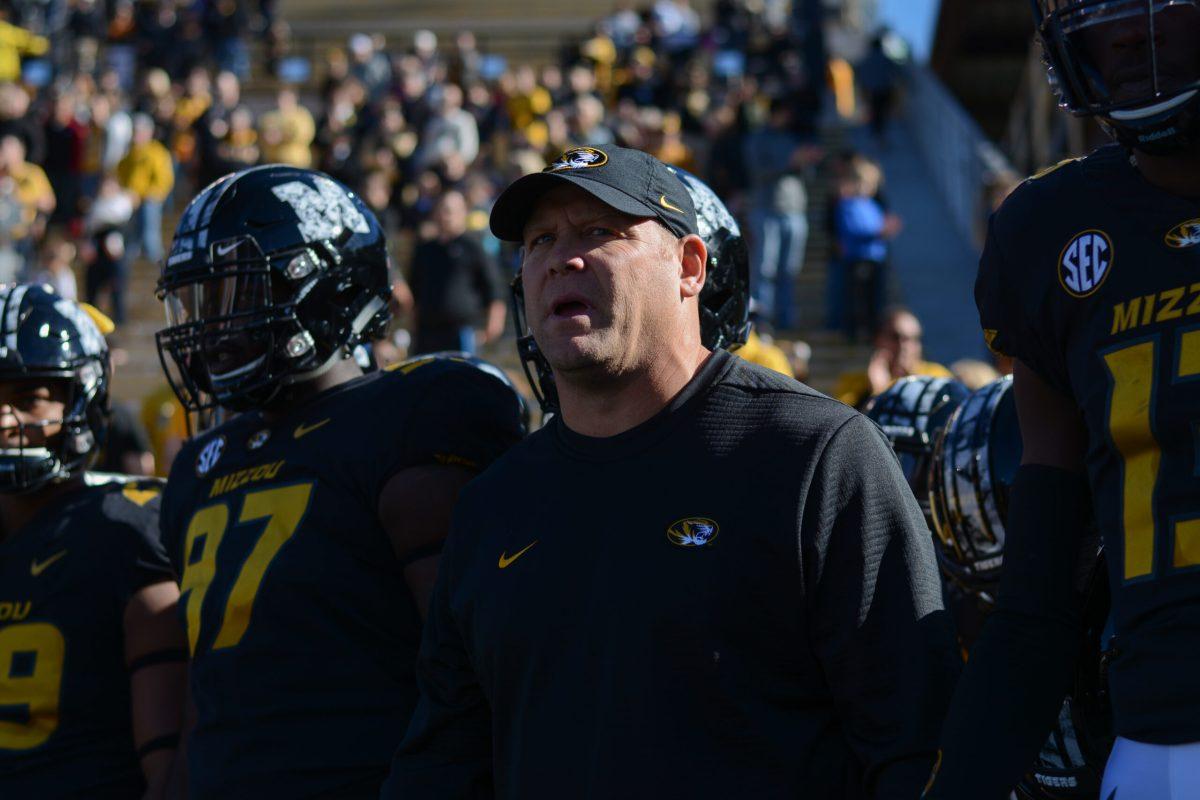
Missouri was praised by the NCAA for self-reporting infractions as soon as they were aware of it. “In this case, Missouri did the right thing and self-reported,” David Roberts, the chief hearing officer for the committee of infractions, said in a press call on Thursday. It didn’t matter.
It was proven that the university knew nothing about the actions of a former tutor who completed 12 student-athlete’s coursework and there was no evidence that she was pressured to “go rogue” and complete work. It didn’t matter.
MU was handed down postseason sanctions for football, baseball and softball during the 2019-2020 athletic seasons on Thursday after an NCAA infractions committee found academic fraud committed by Yolanda Kumar, who was not named in the findings.
These sanctions come four years after the University of North Carolina was found to have an 18-year history of academic fraud with around 188 “paper” classes that kept hundreds of student-athletes eligible. The University of North Carolina was found to have known about these classes during the NCAA investigation, but the university never self-reported to the NCAA about them.
In that case, the university was given no penalties or sanctions by the NCAA.
“A Division I Committee on Infractions could not conclude that the University of North Carolina violated N.C.A.A. academic rules,” the NCAA said in a statement in 2017.
Would things have been different if Missouri had not cooperated? Does this incentivize schools to not cooperate with the NCAA in the future? Roberts was asked just that on Thursday. His response?
“One could certainly make that argument.”
That’s all you need to know about these sanctions. Missouri was punished, very severely, for telling the truth. North Carolina didn’t tell the truth and wasn’t punished, showing the NCAA’s selective enforcement.
Today Missouri fans learned that college sports is a cynical world where lying gets results and nice guys, who self-report, finish last.
It’s even more evident with the NCAA’s treatment of Kumar. She was the whistleblower who helped the NCAA and was essential to the investigation. Her reward was a 10-year show-case penalty. This means that, during that time period, any NCAA school that hires her must restrict her from tutoring athletes.
After not being able to lay down sanctions on North Carolina, the NCAA waited for an opportunity to come crashing down on a university to show how tough it is on academic misconduct.
With Missouri’s self-reporting, the NCAA saw an opportunity and Missouri was harshly punished, partially for doing the right thing at the wrong time.
The large scale hypocrisy of the NCAA’s enforcement is evident, but just looking at how it affects MU ignores the biggest victims of today’s sanctions, the student-athletes and coaches themselves.
The tutor involved in the fraud at Missouri was hired in 2010 and resigned in 2016, according to the St. Louis Post-Dispatch, meaning any fraud between her and student-athletes happened during that time period.
But while one tutor and 12 athletes who were at the university during the mid-2010s were the ones found of wrongdoing, the athletes and coaches on campus today are the ones paying the price.
Incoming quarterback Kelly Bryant came to Missouri without any involvement or knowledge of sanctions or wrongdoing and freshman safety Martez Manuel was in seventh grade while some of the academic fraud took place, but they will be the ones sitting at home without a bowl game to play after they finish their first season with the Tigers.
Neither Barry Odom or softball coach Larissa Anderson were hired in their current positions at MU until after the scandal occurred, but they will both bear the brunt of what occurred under their predecessors. Anderson in particular, since she starts her first season as Missouri’s softball coach a week from tomorrow.
Athletic director Jim Sterk announced that the university plans to appeal the sanctions and is “prepared to win,” but that will be difficult since Sterk is appealing to the NCAA, who handed down those sanctions in the first place. They’ll serve as the judge and jury in the cases. The appeal might last long enough to allow baseball and softball to compete in postseason play, since teams can’t be punished while the appeal process is ongoing, but the appeal attempt will likely be finished before football season.
If there is anything Sterk and the athletic department have learned today it’s this: In college sports, no good deed goes unpunished.
_Edited by Adam Cole | [email protected]_